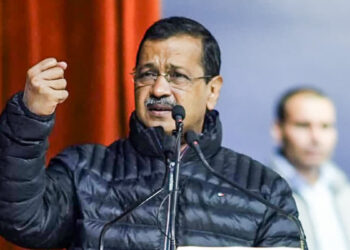New Delhi, July 23, 2025 — The sudden resignation of India’s Vice President Jagdeep Dhankhar on Monday evening has ignited a political firestorm, with high-level meetings and speculation gripping the capital. Dhankhar, who also served as the ex-officio Chairman of the Rajya Sabha, cited health concerns in his resignation letter to President Droupadi Murmu, but political insiders and opposition leaders suggest deeper undercurrents behind the move. The development has prompted urgent discussions among senior leaders of the ruling Bharatiya Janata Party (BJP), with Home Minister Amit Shah meeting Prime Minister Narendra Modi, while Defence Minister Rajnath Singh and Parliamentary Affairs Minister Kiren Rijiju conferred with Lok Sabha Speaker Om Birla.
A Day of Political Drama
The resignation came on the first day of the Monsoon Session of Parliament, which was already marked by chaos and adjournments due to opposition protests over issues like Operation Sindoor and the Pahalgam terror attack. Dhankhar, 74, presided over the Rajya Sabha proceedings and participated in a Business Advisory Committee (BAC) meeting earlier in the day without any visible signs of distress. However, by 9:25 PM, he announced his decision to step down, citing the need to “prioritize health care and abide by medical advice” under Article 67(a) of the Indian Constitution.
The timing of the resignation, coupled with Prime Minister Modi’s terse social media post wishing Dhankhar “good health,” has fueled speculation about underlying tensions. Opposition leaders, particularly from the Congress party, have pointed to a rift between Dhankhar and the government, alleging his exit was “forced” and lacked the usual ceremonial praise reserved for high-office departures.
High-Level Huddles Signal Damage Control
In the wake of Dhankhar’s exit, top BJP leaders scrambled into action. Sources confirmed that Home Minister Amit Shah held a closed-door meeting with Prime Minister Modi to discuss the fallout and strategize next steps. Concurrently, Defence Minister Rajnath Singh and Parliamentary Affairs Minister Kiren Rijiju met Lok Sabha Speaker Om Birla, reportedly to address the implications of Dhankhar’s resignation on parliamentary proceedings and the ongoing impeachment motion against Allahabad High Court Justice Yashwant Varma.
The meetings come amid a buzz that Dhankhar’s decision to accept an opposition-led motion for Justice Varma’s removal—without prior consultation with the government—may have been the tipping point. The government had intended the motion to be a bipartisan effort initiated in the Lok Sabha, but Dhankhar’s move to admit a parallel motion signed by 63 opposition Rajya Sabha MPs disrupted its plans. Under the Judges (Inquiry) Act, 1968, simultaneous motions in both Houses require the presiding officers to jointly form a three-member probe panel, shifting the process to the Rajya Sabha, where Dhankhar held sway.
Opposition Alleges Foul Play
Opposition leaders have seized on the developments, questioning the official narrative of health issues. Congress chief whip Jairam Ramesh claimed that “something very serious” transpired between 1 PM and 4:30 PM on Monday, pointing to the absence of BJP President J.P. Nadda and Rijiju from a BAC meeting chaired by Dhankhar. Ramesh alleged that the ministers’ failure to attend, without personally informing Dhankhar, was a deliberate snub that “rightly” upset the Vice President. Nadda, however, refuted these claims, stating that the Vice President’s office was informed in advance of their absence due to other parliamentary commitments.
Congress leader Vivek Tankha echoed Ramesh’s sentiments, noting that Dhankhar appeared “completely healthy” and conducted proceedings with his usual vigor, suggesting that the resignation was triggered by events in the afternoon. Lok Sabha MP Pappu Yadav went further, alleging that Dhankhar’s impartial conduct as Rajya Sabha Chairman did not sit well with the ruling alliance, particularly after Nadda’s remark in the House that “only what I say will go on record,” which some interpreted as an insult to the Chair.
A Rift Over Judicial Motion?
Dhankhar’s vocal stance on judicial accountability, particularly in the case of Justice Varma—who faces allegations of misconduct following the discovery of unaccounted cash at his residence—appears central to the controversy. Sources indicate that the government was blindsided by Dhankhar’s decision to admit the opposition’s motion without coordination, which embarrassed the ruling alliance as it scrambled to gather signatures for a similar motion in the Lok Sabha.
Political analyst Sheela Bhatt noted that Dhankhar, a former Supreme Court lawyer, may have sought to assert his authority over the impeachment proceedings, potentially clashing with the government’s strategy. “The BJP had no option but to get Dhankhar out of its way for the sake of the Modi government’s stability,” Bhatt wrote, suggesting that his actions were seen as undermining the government’s control over parliamentary processes.
What Lies Ahead?
With Dhankhar’s resignation notified and Rajya Sabha Deputy Chairman Harivansh Narayan Singh taking charge of the Upper House, speculation is rife about the next Vice President. Harivansh’s meeting with President Murmu on Tuesday has fueled talk of his candidacy, especially given his ties to Bihar, where elections are looming.
Meanwhile, the government has resumed its push to pilot the Justice Varma impeachment motion in the Lok Sabha, with Home Minister Shah meeting Speaker Birla on Tuesday evening. The opposition, however, continues to press for clarity on Dhankhar’s exit, with leaders like Mallu Ravi demanding transparency on issues like Operation Sindoor and the Bihar voter roll revision.
As the Monsoon Session continues, the political ripples from Dhankhar’s resignation are likely to shape the narrative, with both sides bracing for a contentious parliamentary battle. The absence of the usual tributes from the ruling alliance and the opposition’s vocal support for Dhankhar underscore the polarized atmosphere in New Delhi, leaving many to wonder: was this a health-driven exit, or a calculated political maneuver?





































